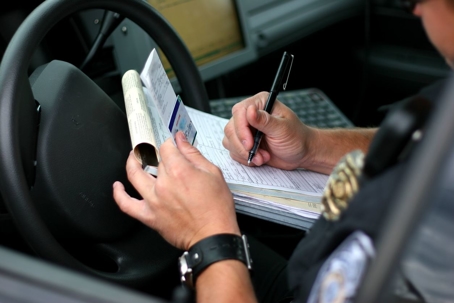Criminal Citations: What They Are & What You Need to Know
A criminal citation is a method of charging a person with committing a criminal offense without going through the standard formalities of arrest, fingerprinting, processing, appearing before a judge for arraignment, and posting of bond. Instead of making an arrest, a police officer can issue a criminal citation if there are reasonable grounds to believe that the person cited will appear in court to answer for the charge.
How Do Criminal Citations Work?
Police officers have broad discretion in deciding whether to arrest someone or issue a citation. Criminal citations are most commonly issued for offenses such as:
- Underage consumption of alcohol
- Possession of marijuana
- Disorderly conduct
- Public intoxication
- Fake or false identification
- Certain traffic offenses
A criminal citation will specify that the recipient must appear in court within a designated time period, commonly 7 to 10 days after the citation is issued. Failure to appear within this timeframe can result in an arrest warrant being issued.
If a criminal citation is defective in form, it will be dismissed. A citation that does not meet legal requirements is void as an instrument initiating prosecution, and a judge presented with such a defective citation has no authority to proceed. However, an individual may still be charged later with a valid citation or even an arrest warrant.
What Happens After Receiving a Criminal Citation?
If you receive a criminal citation, you need to take it seriously. Here’s what to expect:
- Review the Citation Details – The document will include your offense, court date, and potential penalties.
- Decide How to Respond – Options typically include pleading guilty, paying fines, or contesting the charge.
- Prepare for Court – If you decide to fight the citation, legal representation may be beneficial.
- Possible Outcomes – Charges could be dismissed, reduced, or result in fines, probation, or community service.
Criminal Citation vs. Arrest: What’s the Difference?
| Feature | Criminal Citation | Arrest |
|---|---|---|
| Custody | No | Yes |
| Court Appearance Required | Yes | Yes |
| Can Lead to Jail Time | Sometimes | Yes |
| Fingerprinting Required | No | Yes |
| Immediate Release | Yes | No (until bail or court hearing) |
A criminal citation is not an automatic conviction—you still have the right to defend yourself in court, just as you would with a formal arrest.
Common Questions About Criminal Citations
Is a Criminal Citation Considered a Charge?
Yes, a criminal citation is a legal charge that requires you to appear in court. While it is less severe than an arrest, it still carries potential penalties and can impact your record.
Can a Criminal Citation Lead to Jail Time?
In some cases, yes. If you fail to appear in court or if the offense carries possible jail time, you could face more severe consequences.
What Happens if I Ignore My Criminal Citation?
Ignoring a criminal citation is a serious mistake. Failure to appear in court can result in:
- An arrest warrant being issued
- Additional fines and penalties
- Potential jail time
Can a Criminal Citation Be Dismissed?
Yes, citations can be dismissed if they are issued improperly or if there is insufficient evidence. Legal representation can help in challenging the citation in court.
Legal Consequences & Next Steps
- Fines & Penalties: Depending on the offense, fines can range from minor amounts to significant penalties.
- Criminal Record: Some citations may appear on background checks, affecting employment opportunities.
- License Suspension: Certain citations, particularly traffic-related offenses, could lead to a suspended driver’s license.
What to Do If You Receive a Criminal Citation
If you receive a criminal citation, you should:
- Read it carefully and note your court date.
- Contact an attorney to discuss your options.
- Do not ignore it—respond within the required time frame.
If you’ve received a criminal citation and aren’t sure what to do next, contact our experienced criminal defense attorneys for a free consultation.

